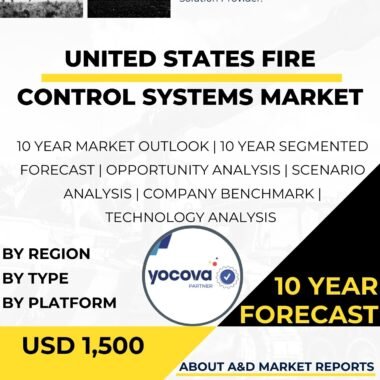Description
The Belgium fire control systems market is a significant segment within the country’s defense industry. Fire control systems are crucial components of modern military platforms, providing accurate targeting, guidance, and control of weapon systems. Belgium recognizes the importance of advanced fire control systems in enhancing the effectiveness of its armed forces, improving precision engagement capabilities, and ensuring operational superiority.
The primary driver for the Belgium fire control systems market is the need for advanced and integrated systems that can enhance the accuracy and effectiveness of weapon systems. Fire control systems encompass a range of technologies, including sensors, target acquisition, tracking systems, ballistic calculators, and control interfaces. These systems enable precise target engagement, reduce collateral damage, and increase operational efficiency.
Belgium’s domestic defense industry plays a crucial role in the development, production, and integration of fire control systems. Belgian companies, such as FN Herstal and OIP Sensor Systems, have expertise in fire control technologies and contribute to the country’s defense capabilities. These domestic capabilities foster innovation, create job opportunities, and contribute to the economic growth of the Belgium fire control systems market.
Collaborations with international partners and suppliers are also significant for the Belgium fire control systems market. Belgium often engages in partnerships with defense companies from NATO member states and other allied nations to access advanced fire control technologies, benefit from joint development programs, and ensure interoperability with allied forces. These collaborations enable Belgium to leverage global advancements in fire control systems and enhance its military capabilities.
Furthermore, Belgium’s participation in multinational defense initiatives influences the fire control systems market. Collaboration within NATO and other international defense cooperation programs fosters interoperability, joint training exercises, and the exchange of best practices. This cooperation ensures compatibility and enhances operational effectiveness when conducting joint military operations with allied forces.
The Belgium fire control systems market faces challenges such as technological advancements, integration considerations, and cost-effectiveness. Technological advancements in fire control systems, including improvements in sensor technology, data processing, and integration with other weapon systems, require continuous research and development efforts. The Belgium market needs to stay at the forefront of innovation to provide state-of-the-art fire control systems that meet evolving defense requirements.
Integration considerations are crucial for the successful implementation of fire control systems. Belgium’s defense industry must ensure seamless integration of fire control systems with existing military platforms, communication systems, and command and control networks. Interoperability, compatibility, and efficient data exchange between fire control systems and other weapon systems are essential for the successful operation of integrated weapon systems.
Cost-effectiveness is an important consideration in the adoption of fire control systems. Belgium, like other nations, must carefully manage defense budgets and allocate resources prudently. The cost of developing, integrating, and maintaining fire control systems should be balanced against the need for enhanced targeting and engagement capabilities, ensuring a cost-effective approach without compromising operational effectiveness.
In conclusion, the Belgium fire control systems market is a significant segment within the country’s defense industry. Fire control systems play a crucial role in enhancing the accuracy, precision, and effectiveness of weapon systems. Domestic capabilities, collaborations with international partners, and Belgium’s participation in international defense initiatives drive the growth and development of the fire control systems market. As defense requirements evolve and technological advancements continue, the demand for advanced and integrated fire control systems is expected to increase, fostering innovation, collaboration, and economic growth within the sector.




